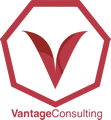| Month | Date | Duration | Cost | Location | Make a Booking |
|---|---|---|---|---|---|
| January | 14th-16th | 3 Days | ₦ 204,750 | Port Harcourt | Click to Book |
| February | 5th -8th | 3 Days | ₦ 157,500 | Lagos | Click to Book |
| July | 22nd-24th | 3 Days | ₦ 157,500 | Lagos | Click to Book |
| September | 9th- 11th | 3 Days | ₦ 204,750 | Abuja | Click to Book |
| October | 14th-16th | 3 Days | ₦ 157,500 | Lagos | Click to Book |
| December | 2nd -4th | 3 Days | ₦ 204,750 | Port Harcourt | Click to Book |
The purpose of this course is to enable you as a leader in your organisation to initiate and address issues connected with change, complexity and innovation. Focusing on the development of your leadership role and personal style of leadership, this is a practical course set within the context of your business, and both its current and future strategic imperatives. This enjoyable course is participatory, and structured around action learning. The approach encourages discipline and a closer focus on the development of tailored plans that reach goals. The course objectives are for participants to recognise and develop the key leadership skills that will make a difference.
- Enhanced skills and confidence levels
- Better understanding of performance and change management issuesImproved competence in gaining the trust and support of colleagues
- Discussed the needs of strategic, business and operational planning
- Examined and develop a range of leadership skills : presenting ideas; making a case for change; decision-making; influencing; negotiating; interviewing; team working
- Review challenges and opportunities for change
- Explore the advantages and disadvantages of different leadership styles
- The course is designed for participants to gain insight into their personal leadership and development priorities.Participants will take from the course an action plan that has a focus on their personal and leadership plans for their future work
- Strategic planning
- Defining stakeholders and their needs
- Increasing everyone’s ownership of and commitment to change
- Clarification of strategic and operational programmes and projects
- Elements of Good Governance
- Making Quality Count – defining measures of success
- Understanding and managing effective contracts
- Gaining the trust and support of colleagues
- Effective working relationships
- Leadership styles and skills development
- Course Overview
-
The purpose of this course is to enable you as a leader in your organisation to initiate and address issues connected with change, complexity and innovation. Focusing on the development of your leadership role and personal style of leadership, this is a practical course set within the context of your business, and both its current and future strategic imperatives. This enjoyable course is participatory, and structured around action learning. The approach encourages discipline and a closer focus on the development of tailored plans that reach goals. The course objectives are for participants to recognise and develop the key leadership skills that will make a difference.
- Course Objectives
-
- Enhanced skills and confidence levels
- Better understanding of performance and change management issuesImproved competence in gaining the trust and support of colleagues
- Discussed the needs of strategic, business and operational planning
- Examined and develop a range of leadership skills : presenting ideas; making a case for change; decision-making; influencing; negotiating; interviewing; team working
- Review challenges and opportunities for change
- Explore the advantages and disadvantages of different leadership styles
- The course is designed for participants to gain insight into their personal leadership and development priorities.Participants will take from the course an action plan that has a focus on their personal and leadership plans for their future work
- Course Outline
-
- Strategic planning
- Defining stakeholders and their needs
- Increasing everyone’s ownership of and commitment to change
- Clarification of strategic and operational programmes and projects
- Elements of Good Governance
- Making Quality Count – defining measures of success
- Understanding and managing effective contracts
- Gaining the trust and support of colleagues
- Effective working relationships
- Leadership styles and skills development



